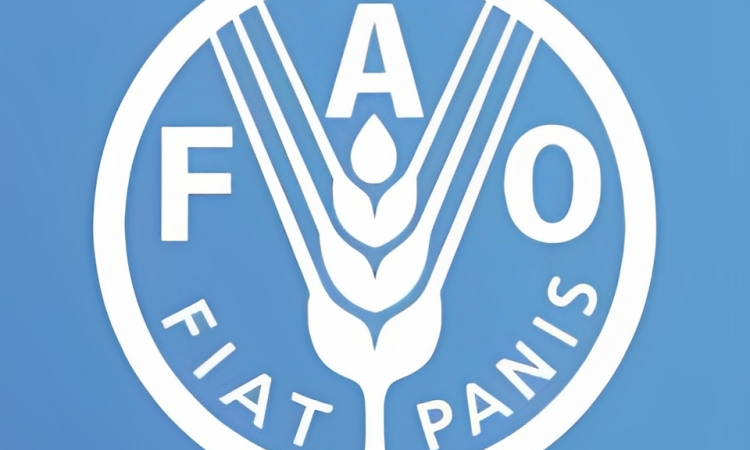
JOB DESCRIPTION
Organizational Setting
The Food and Agriculture Organization of the United Nations (FAO) contributes to the achievement of the 2030 Agenda through the FAO Strategic Framework by supporting the transformation to MORE efficient, inclusive, resilient, and sustainable agrifood systems, for better production, better nutrition, a better environment, and a better life, leaving no one behind.
The Plant Production and Protection Division (NSP) enables the transition to MORE efficient, inclusive, resilient and sustainable plant production and protection through optimization and minimization. This requires the integration and harmonization of all appropriate crop production policies and practices in order to increase production in a sustainable manner and to eradicate hunger, while preserving the natural resources and the environment for future use.
The position is located at FAO headquarters in Rome, Italy in the Pest and Pesticides Management Team (NSPCD), one of the six teams that make up NSP. The Team provides advice on integrated pest management for sustainable crop production systems, and pesticide management in the contexts of the implementations of the International Code of Conduct on Pesticide Management, the Kunming-Montreal Global Biodiversity Framework, and other international agreements. As part of these, the Team is responsible for the FAO Pesticide Registration Toolkit (Toolkit), a web-based decision support system that assists pesticide registrars to make informed decisions in the evaluation and authorization of pesticides.
The incumbent will contribute to the management of the Toolkit, in particular through the further development of modules.
The incumbent will elaborate the following topics:
• Data requirements and testing guidelines
The information sheets in the Toolkit provide information to the registrar on the type of data that may be required, the circumstances under which they are (or are not) required and available international testing guidance. Different data are needed to evaluate different topics. For each topic a set of data requirements are developed and for each data requirement an information sheet is developed.
In principle, the format as applied in the Pesticide Registration Toolkit should be followed.
• Assessment methods
Guidance should be elaborated for the Assessment Methods module in the Toolkit about the evaluation of key elements of the registration dossier. The Assessment Method module provides basic guidance on the evaluation of specific aspects of a pesticide registration dossier, based on reputable international and national guidelines.
• Working group
The consultant may need to present the drafted contents for an (on-line) technical working group, consisting of external experts. The working group will review the drafted texts and provide further technical inputs for consideration by FAO.
• Finalization of contents
The consultant will finalize the drafted Toolkit contents, based on the inputs provided by the working group.
Advertisement
Reporting Lines
The incumbent will work under the direct supervision of the Team Leader of NSPCD.
Technical Focus
Biological control modules for the Toolkit, including microbial agents, macrobials, botanicals, and semiochemicals. Development of data requirements and testing guidelines as well as assessment methods for evaluation and registration of the biological control agents and invertebrates – beneficial insects, mites and nematodes (macrobials). The assignment will be home-based with possible duty travels to selected countries for in-person training.
Tasks and responsibilities
The incumbent shall contribute to the management of the FAO Pesticide Registration Toolkit work, in particular:
• Develop contents for the registration of biological pest control agents, i.e. biopesticides, including microbials, macrobials, botanicals and semiochemicals. The contents will be primarily based on the “FAO/WHO Guidelines for the registration of microbial, botanical and semiochemical pest control agents for plant protection and public health uses” (2017). Where needed, it will be supplemented by information from reputable national or regional pesticide registration authorities or international organizations.
• Develop contents for the registration of Invertebrates – beneficial insects, mites and nematodes (macrobials). The contents will be based on the international guidelines/information and guidelines/information from reputable national or regional pesticide registration authorities or international organizations.
• Develop training materials for the evaluation and registration of biological pest control agents and macrobials for in-person, hybrid, and e-learning training.
• Conduct on-line or in-person training on the evaluation and registration of biological pest control agents and macrobials.
CANDIDATES WILL BE ASSESSED AGAINST THE FOLLOWING
Minimum Requirements
• Advanced university degree (Master’s level or above) in biological control, agriculture, agroecology, crop science, soil science or related field.
• A minimum of 5 years of relevant experience in a national/international context working either with a government institution, relevant Non-Governmental Organizations, National Regulatory Authorities, industry, academia, or other related functional area.
• For Consultants: Working knowledge (Level C) of English and limited knowledge (Level B) of one of the other official UN languages (Arabic, Chinese, French, Russian or Spanish). For Subscribers: Working knowledge of English.
FAO Core Competencies
• Results Focus
• Teamwork
• Communication
• Building Effective Relationships
• Knowledge Sharing and Continuous Improvement
Technical/Functional Skills
• Integrated Pest Management (IPM) and/or
• Assessment and evaluation of biological control agents, and/or
• Registration of biological control agents, and/or
• Designing and leading implementation of biological control programmes, and/or
• Developing and/or implementing global or national strategies, policies or guidance and/or
• Research & development of Biological Pest Control Agents
• Excellent technical writing skills.
• Technical screening of information
• Experience in preparation of training materials and/or e-learning modules
Selection Criteria
• Understanding of the resource and technical limitations of regulatory agencies in low- and middle-income countries, and capacity of taking those into account when developing Toolkit and training materials.